Digital Man
The Digital Man has lost fundamental human needs and rhythms, becoming something other than human—a cautionary tale about the potential consequences of fully embracing a digital existence at the expense of our humanity.

I'll expand on each of these sections, delving deeper into their meaning and implications within the context of the song and broader themes.
"His world is under observation"
This opening line sets a powerful tone for the entire song. It immediately establishes a sense of paranoia and constant surveillance, which are hallmarks of many dystopian narratives. The use of "under observation" suggests a lack of privacy and personal freedom, evoking a feeling of being trapped or constrained.
In the context of the "Digital Man," this line could be interpreted in several ways:
- Literal surveillance: In our increasingly digital world, we are often under observation through cameras, online tracking, and data collection.
- Social media scrutiny: The line could refer to the constant exposure and judgment that comes with living life online, where every action can be observed and critiqued by others.
- Corporate monitoring: It might allude to how companies monitor employees or how consumer behavior is tracked for marketing purposes.
- Government surveillance: This could be a nod to state-sponsored monitoring programs, echoing concerns about privacy in the digital age.
- Self-surveillance: In a world of constant connectivity, we often monitor ourselves, always aware of how we might be perceived by others.
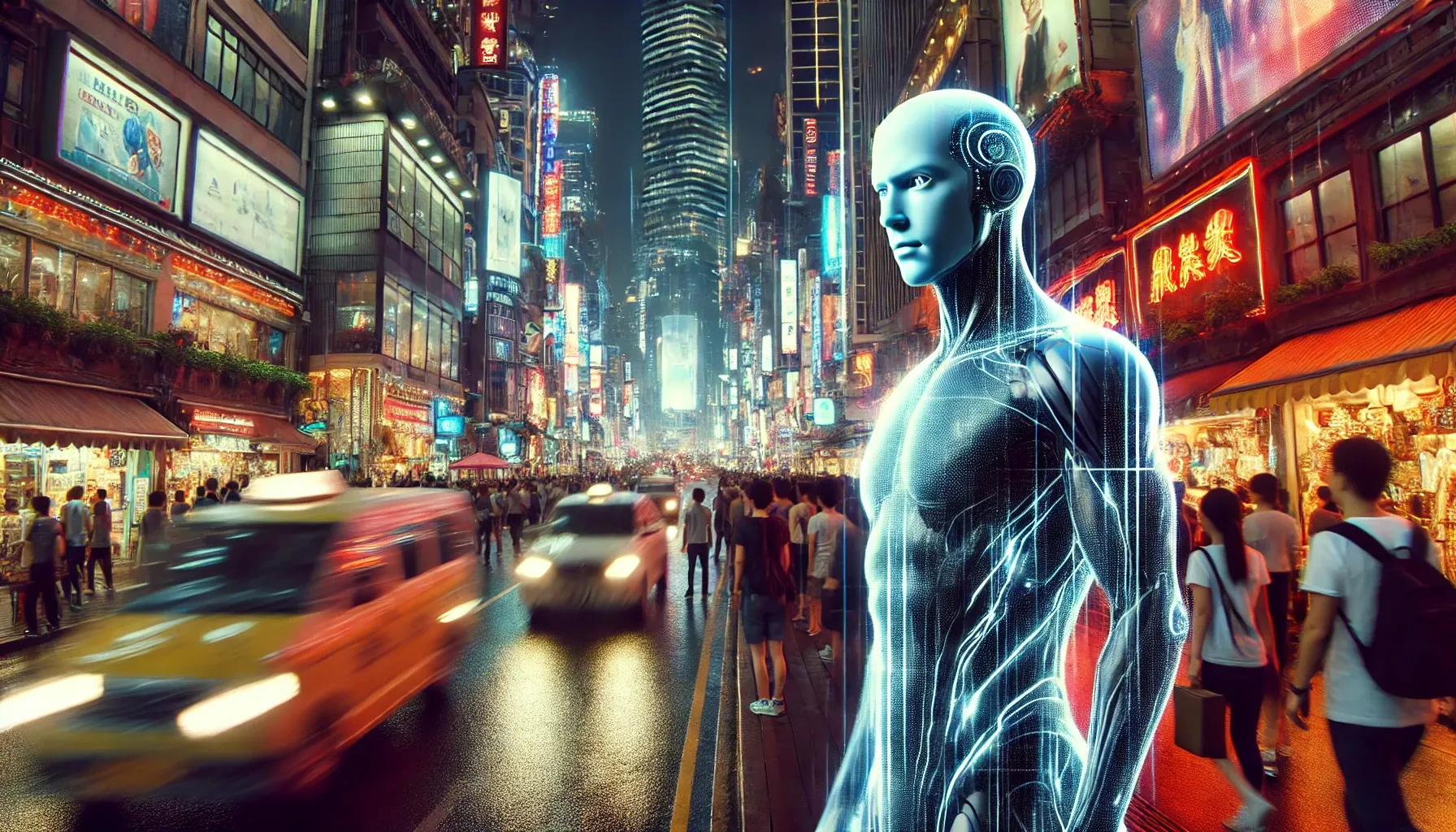
The comparison to Orwell's 1984 is apt, as both works explore themes of constant surveillance and its impact on individual freedom and behavior. However, while 1984's surveillance is overtly oppressive, the surveillance in "Digital Man" seems more insidious and normalized, perhaps reflecting how we've become accustomed to being watched in the digital age.
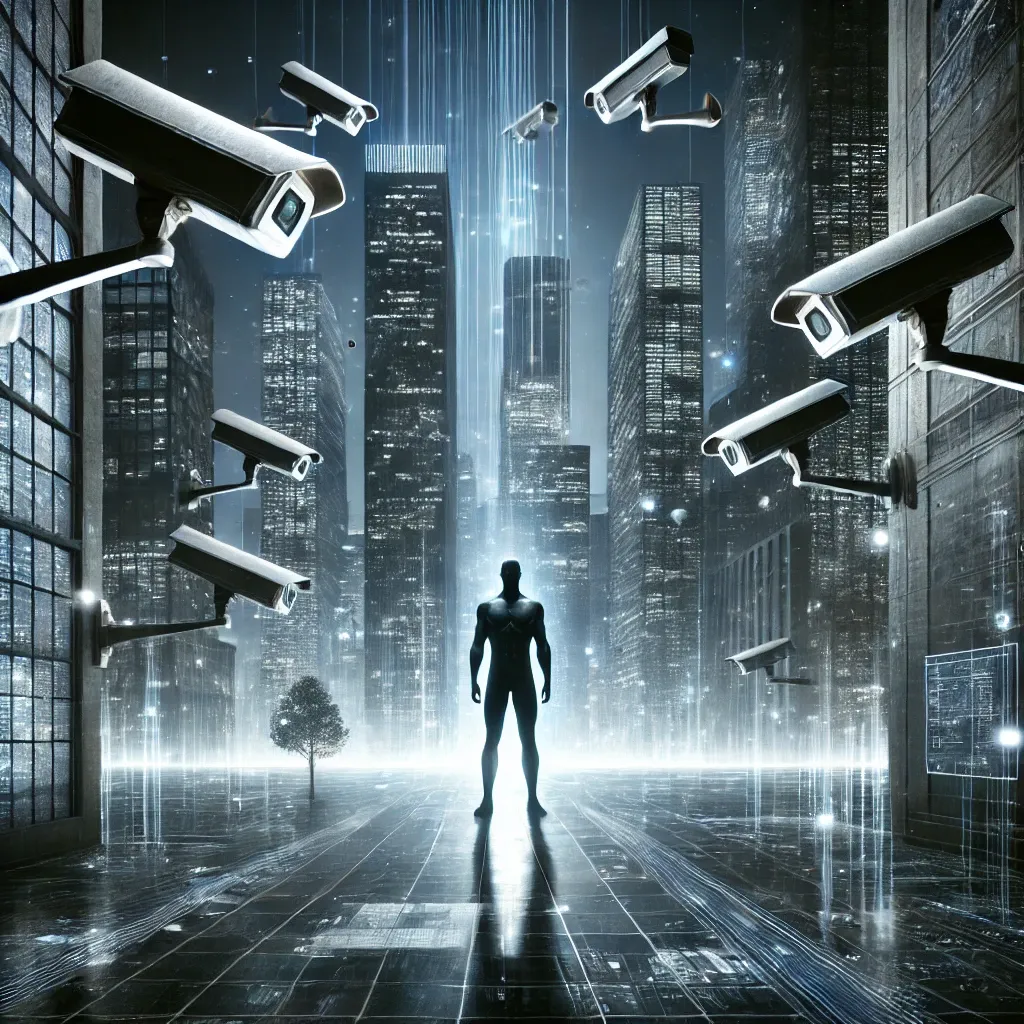


"We monitor his station"
This line builds on the theme of surveillance but adds a new layer of complexity. The use of "we" is particularly intriguing and can be interpreted in several ways:
- Collective responsibility: It might suggest that we are all complicit in the surveillance culture, both as watchers and the watched.
- Narrator as system: The "we" could position the narrator as part of the surveillance system, giving us an insider's perspective.
- Audience involvement: It could be drawing the listener into the narrative, making us consider our own role in digital surveillance.
- Societal norms: "We" might represent society as a whole, monitoring and judging individuals' behavior and status.

The term "station" is also multi-faceted:
- Social status: It could refer to the Digital Man's place in the social hierarchy.
- Job or role: "Station" might indicate his professional position or function in society.
- Mental state: It could be a reference to his psychological condition or state of mind.
- Physical location: In a more literal sense, it might refer to tracking his physical whereabouts.

This line reinforces the idea of constant monitoring, suggesting that every aspect of the Digital Man's life is under scrutiny. It also introduces the unsettling idea that this surveillance is a collective act, not just the work of a singular oppressive force.
"Under faces and the places" "Where he traces points of view"
These lines add depth to the character of the Digital Man and his world:
"Under faces" suggests several interpretations:
- Superficiality: It could imply a world of surface-level interactions, where true feelings are hidden.
- Multiple identities: In the digital world, people often present different "faces" or personas in different contexts.
- Mask wearing: It might refer to the idea of putting on a facade to fit into society.
"The places where he traces points of view" is a rich phrase:
- Information gathering: The Digital Man seems to be constantly collecting and analyzing different perspectives.
- Navigating ideologies: It suggests he's trying to map out or understand various ways of thinking.
- Detachment: "Tracing" implies a certain distance or lack of deep engagement with these viewpoints.
- Digital landscapes: "Places" could refer to online spaces where different opinions are expressed.
- Analytical mindset: The Digital Man appears to approach these viewpoints from a logical, almost scientific standpoint, "tracing" them as if they were data points.
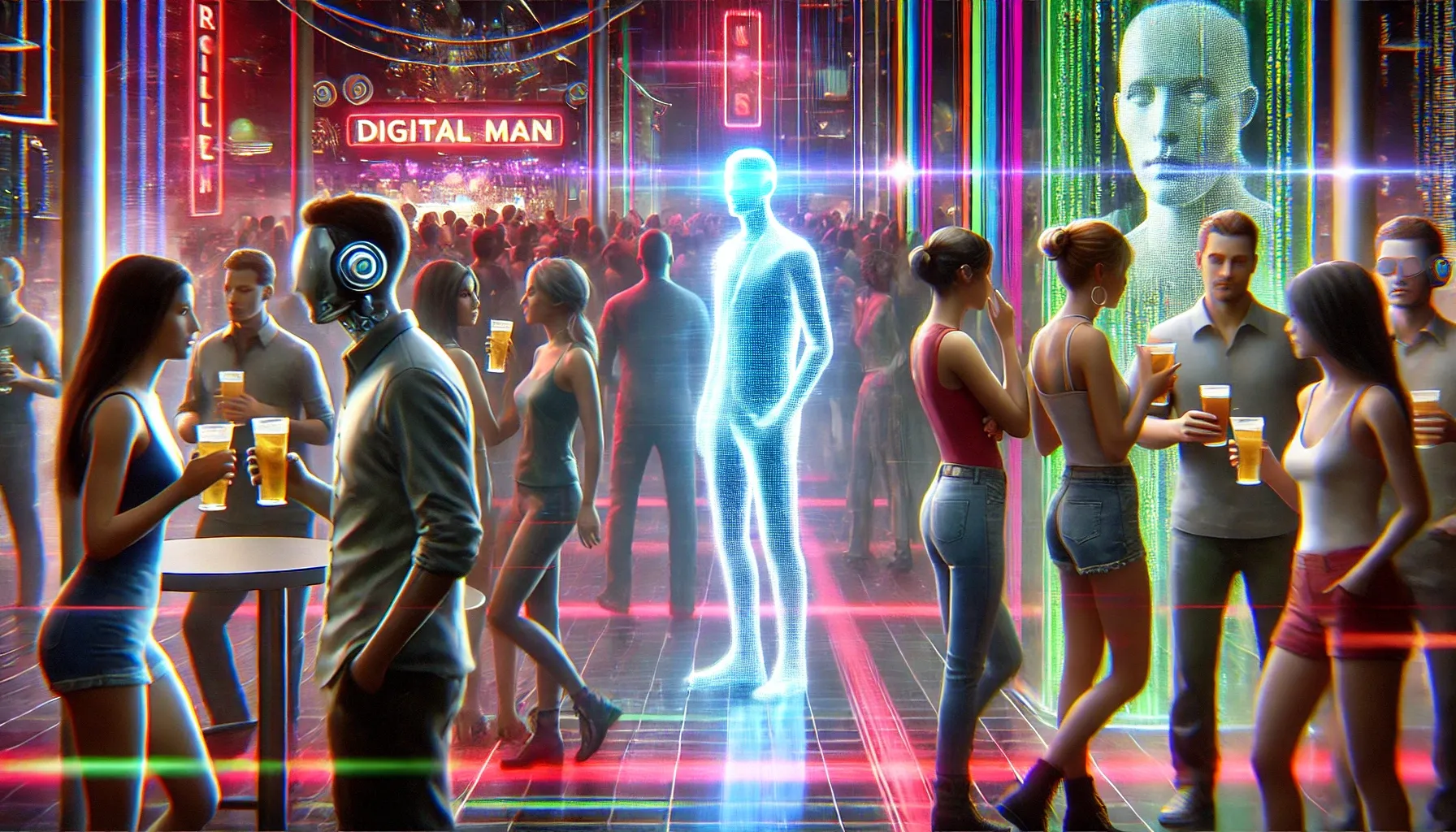
This portrayal suggests a character who is constantly processing information and navigating different perspectives, but perhaps struggling to form his own authentic viewpoint or to engage deeply with any one ideology. It paints a picture of a world where opinions are plentiful but genuine understanding is rare.
"He picks up scraps of conversation" "Radio and radiation"
These lines further develop the idea of the Digital Man as a collector of fragmented information:
"Scraps of conversation" implies:
- Incomplete information: The Digital Man doesn't get full conversations, just pieces.
- Information overload: There's so much data that he can only process bits and pieces.
- Lack of context: These "scraps" might be missing crucial context, leading to misunderstandings.
- Passive absorption: "Picks up" suggests he's constantly, perhaps unconsciously, absorbing information.
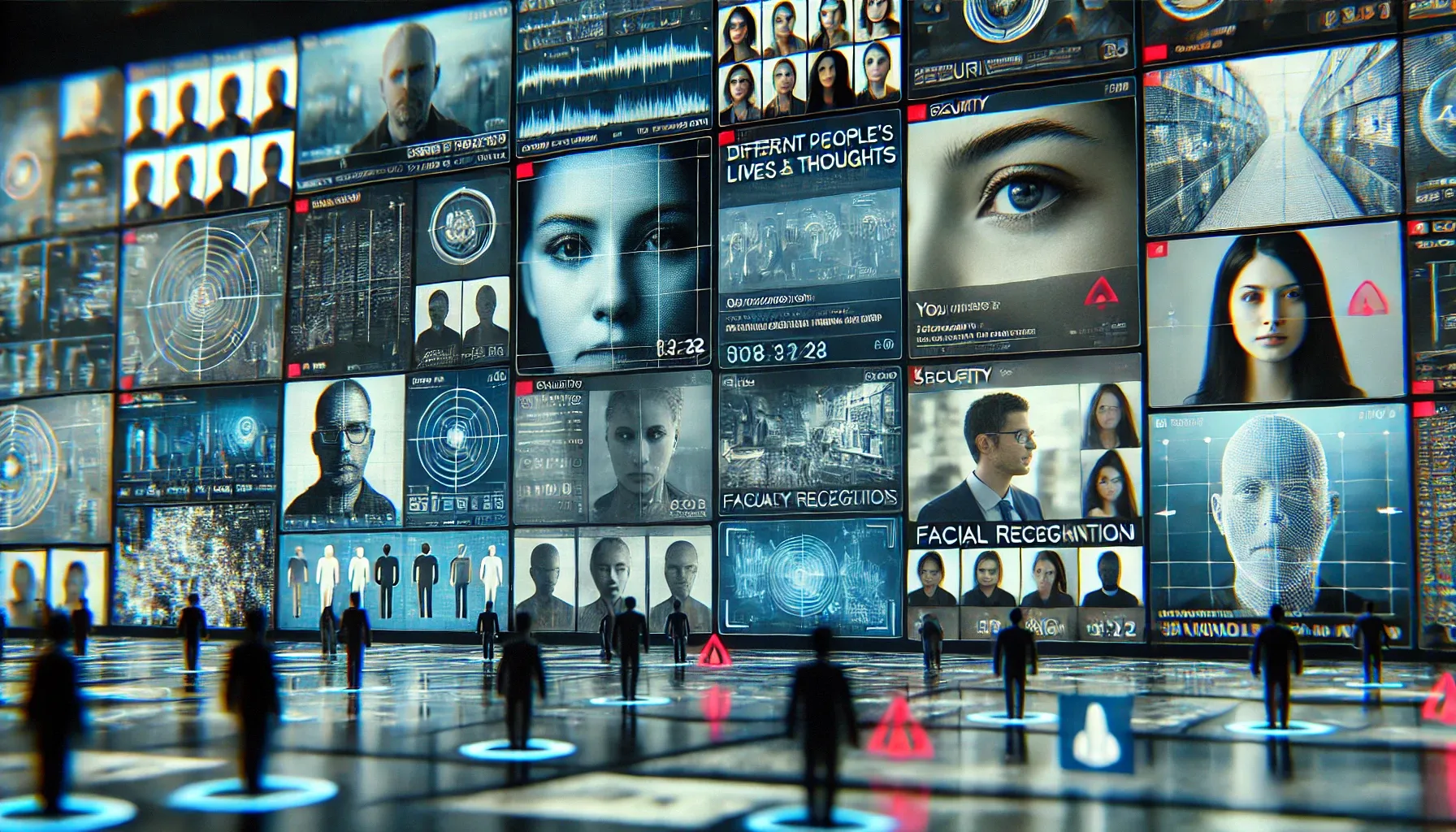
"Radio and radiation" is a powerful pairing:
- Technology: Both terms relate to forms of wireless communication and energy.
- Pervasiveness: Like radio waves and radiation, information in the digital age is everywhere, unseen but ever-present.
- Potential harm: While radio is generally benign, radiation can be harmful, perhaps hinting at the potentially damaging effects of constant information exposure.
- Spectrum of information: From clear signals (radio) to background noise (radiation), this could represent the range of information quality in the digital world.
- Invisible influences: Both radio and radiation affect us in ways we can't directly perceive, much like how digital information shapes our worldview.
These lines paint a picture of a world saturated with information, where the Digital Man is constantly bombarded with data from all directions. It suggests a kind of passive consumption, where he's always receiving information but perhaps not fully processing or understanding it.
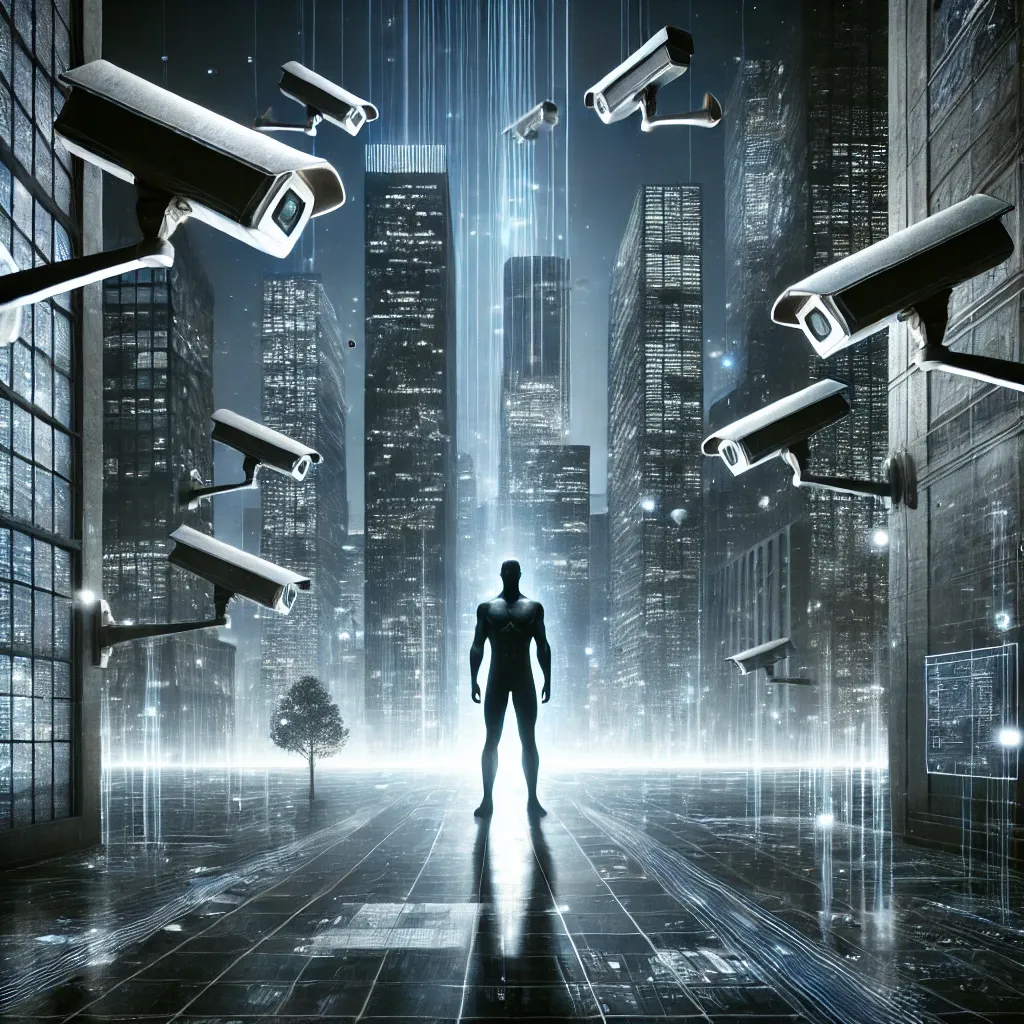
"From the dancers and romancers" "With the answers but no clue"
This couplet adds a layer of social commentary to the song:
"Dancers and romancers" could represent:
- Performers: People who are always "on," performing for an audience (perhaps on social media).
- Socialites: Those who seem to navigate the social world with ease.
- Influencers: In modern terms, this might refer to social media personalities who present a curated version of life.
- Smooth talkers: People who are good at presenting information convincingly, regardless of its truth.
"With the answers but no clue" is a particularly biting critique:
- Surface-level knowledge: It suggests people who can recite facts but lack deep understanding.
- Dunning-Kruger effect: This psychological phenomenon where people overestimate their own knowledge or competence seems relevant here.
- Information without wisdom: In the digital age, facts are easily accessible, but true wisdom or understanding is rarer.
- Performative expertise: It could refer to the tendency in digital culture to present oneself as an expert, even without genuine knowledge.
- Disconnect between information and understanding: Having "answers" doesn't necessarily mean having real insight or "clues" about the bigger picture.
These lines paint a picture of a society where people project confidence and knowledge, but lack genuine understanding. It's a critique of a culture that values quick, easily digestible information over deep, nuanced understanding. The Digital Man, constantly picking up "scraps" from these sources, is surrounded by a cacophony of confident voices that may be leading him astray.
"He'd love to spend the night in Zion" "He's been a long while in Babylon"
These lines introduce a spiritual or philosophical dimension to the song through biblical allusion:
Zion:
- Holy place: In Judeo-Christian tradition, Zion often represents the holy city or the kingdom of God.
- Utopia: It's often used more broadly to represent an ideal society or perfect world.
- Authenticity: In the context of the song, it might represent a place of genuine connection and meaning.
- Spiritual fulfillment: Spending the night in Zion could symbolize a desire for spiritual or emotional peace.
Babylon:
- Corrupt society: In biblical terms, Babylon often represents a materialistic, corrupt society.
- Exile: The Babylonian exile in Jewish history represents a period of displacement and hardship.
- Worldly temptations: Babylon can symbolize a place of worldly pleasures that distract from spiritual pursuits.
- Digital world: In the context of this song, Babylon might represent the overwhelming, always-on digital world.
The contrast between Zion and Babylon sets up a powerful dichotomy:
- Ideal vs. Reality: Zion represents what the Digital Man longs for, while Babylon is his current state.
- Spiritual vs. Material: It suggests a tension between spiritual fulfillment and worldly existence.
- Temporary vs. Permanent: "Spend the night" in Zion vs. "a long while" in Babylon implies he sees his current state as a kind of prolonged exile.
- Simplicity vs. Complexity: Zion might represent a simpler, more authentic existence compared to the complex, artificial world of Babylon.
This couplet adds a layer of yearning and discontent to the character of the Digital Man. Despite his apparent adaptation to the digital world, he longs for something more meaningful and authentic. It suggests that despite all the advances of the digital age, there's a fundamental human need for connection and meaning that remains unfulfilled.
"His world is under anesthetic" "Subdivided and synthetic"
These lines paint a vivid picture of the Digital Man's world:
"Under anesthetic":
- Numbness: Suggests a lack of feeling or sensitivity, both emotionally and physically.
- Disconnection: Implies a separation from reality, as if the Digital Man is observing his world from a detached state.
- Painlessness: While anesthesia prevents pain, it also prevents positive sensations, suggesting a trade-off of comfort for genuine experience.
- Controlled state: Anesthesia is typically administered by others, hinting at external control over the Digital Man's perceptions.
"Subdivided and synthetic":
- Fragmentation: The world is broken down into smaller, perhaps manageable, but disconnected parts.
- Artificiality: "Synthetic" implies a manufactured reality, far removed from nature or authenticity.
- Complexity: A subdivided world might be more complex, with many interconnected but separate systems.
- Loss of wholeness: Suggests that the natural unity of the world has been disrupted or lost.
Together, these lines evoke a sense of a world that's been broken down, rebuilt artificially, and experienced through a filter that dulls sensation. It's a powerful metaphor for how digital technology might be changing our perception and experience of reality.
"His reliance on the giants" "In the science of the day"
This couplet introduces the idea of dependence on external forces:
"Reliance on the giants":
- Tech companies: Could refer to major corporations like Google, Apple, or Amazon that dominate the digital landscape.
- Scientific institutions: Might indicate a dependence on large research organizations or universities.
- Thought leaders: Could symbolize influential figures in science, technology, or philosophy.
- Algorithms: In a more abstract sense, the "giants" could be the vast, unseen algorithms that increasingly shape our digital experiences.
"In the science of the day":
- Cutting-edge technology: Suggests a focus on the latest scientific advancements.
- Transient knowledge: "Of the day" implies that this science is constantly changing, perhaps unreliable.
- Scientism: Might critique an over-reliance on scientific explanations for all aspects of life.
- Zeitgeist: Could refer to the prevailing scientific paradigms or popular understanding of science.
This reliance suggests a loss of autonomy or individual understanding. The Digital Man doesn't necessarily understand the forces shaping his world, but he depends on them nonetheless. It raises questions about the role of expertise in a world where information is abundant but deep understanding is rare.
"He picks up scraps of information" "He's adept at adaptation"
These lines further develop the character of the Digital Man:
"Picks up scraps of information":
- Fragmented knowledge: Reinforces the idea of incomplete understanding.
- Passive learning: Suggests he's constantly absorbing information, but perhaps not actively seeking or processing it.
- Information overload: Implies there's so much data that he can only grasp pieces of it.
- Decontextualized data: "Scraps" suggest bits of information removed from their original context.
"Adept at adaptation":
- Survival skill: In a rapidly changing world, adaptability is crucial.
- Superficial change: Might suggest he's good at surface-level adjustments, but not deep transformation.
- Reactivity: Implies he's always reacting to new information rather than acting from a stable core.
- Evolutionary metaphor: Could allude to the idea of digital darwinism, where only the most adaptable survive.
This pairing suggests that the Digital Man is skilled at navigating his ever-changing world, but perhaps at the cost of depth or consistency. He's always changing, always adapting, but never fully formed.
"Because for strangers and arrangers" "Constant change is here to stay"
This couplet comments on the nature of the Digital Man's world:
"Strangers and arrangers":
- Unknown forces: "Strangers" suggests the Digital Man is influenced by forces he doesn't know or understand.
- Powerbrokers: "Arrangers" implies there are unseen entities organizing or controlling his world.
- Algorithms: Could refer to the opaque systems that increasingly shape our digital experiences.
- Social media: Might allude to how our lives are increasingly influenced by people we don't really know.
"Constant change is here to stay":
- Paradox: The only constant is change, a classic philosophical concept.
- Instability: Suggests a world where nothing is reliable or long-lasting.
- Adaptation pressure: Implies that the ability to change is now a permanent requirement.
- Progress narrative: Could be critiquing the idea that constant change is necessarily good or inevitable.
This section paints a picture of a world in constant flux, controlled by unseen forces, where the Digital Man must constantly adapt to survive.
"He's got a force field and a flexible plan"
This line suggests both defense and adaptability:
"Force field":
- Emotional barrier: Could represent emotional detachment or protection from the chaos of his world.
- Information filter: Might be a way of managing the constant influx of data.
- Digital security: Could allude to cybersecurity measures.
- Isolation: Suggests a separation from genuine connection or experience.
"Flexible plan":
- Adaptability: Reinforces the idea of constant change and adjustment.
- Lack of commitment: A flexible plan might mean never fully committing to any one course.
- Reactivity: Suggests he's always ready to change direction based on new information.
- Survival strategy: In a world of constant change, a rigid plan would be a liability.
This line presents the Digital Man as someone always prepared, always protected, but perhaps never truly engaged or committed.
"He's got a date with fate in a black sedan"
This line introduces an ominous note:
- Inevitability: A "date with fate" suggests an unavoidable future.
- Luxury and darkness: The "black sedan" evokes both high status and potential danger.
- Anonymity: Black sedans are often associated with powerful, anonymous figures.
- Journey: Could symbolize the Digital Man's life journey leading to an unknown but significant destination.
- Death metaphor: In some interpretations, this could be seen as an allusion to death, the ultimate "date with fate."
This line adds a sense of foreboding to the Digital Man's story, suggesting that despite his adaptability and protection, there's an inescapable outcome awaiting him.
"He plays fast forward for as long as he can"
This line emphasizes the pace of the Digital Man's existence:
- Acceleration: Suggests he's living life at an unnaturally fast pace.
- Avoidance: "Fast forward" could imply he's trying to skip over difficult or boring parts of life.
- Future focus: Indicates he's always looking ahead, never present in the moment.
- Unsustainability: "As long as he can" suggests this pace can't be maintained indefinitely.
- Control illusion: Implies he thinks he can control the flow of time or experience.
This reinforces the image of the Digital Man as someone always rushing, never pausing to reflect or truly experience life.
"But he won't need a bed" "He's a digital man"
These final lines serve as a powerful conclusion:
"Won't need a bed":
- Sleeplessness: Suggests he no longer requires rest, a fundamental human need.
- Disembodiment: Implies he's transcended physical needs.
- Constant activity: Reinforces the idea that he never stops or slows down.
- Loss of humanity: Not needing sleep suggests he's no longer fully human.
"He's a digital man":
- Transformation complete: Suggests he's fully transformed from human to digital entity.
- Identity statement: Defines him entirely by his digital nature.
- New species: Implies he's evolved (or devolved) into something post-human.
- Irreversibility: Suggests this change is complete and perhaps permanent.
These final lines drive home the dehumanizing effect of the digital existence described throughout the song. The Digital Man has lost fundamental human needs and rhythms, becoming something other than human—a cautionary tale about the potential consequences of fully embracing a digital existence at the expense of our humanity.

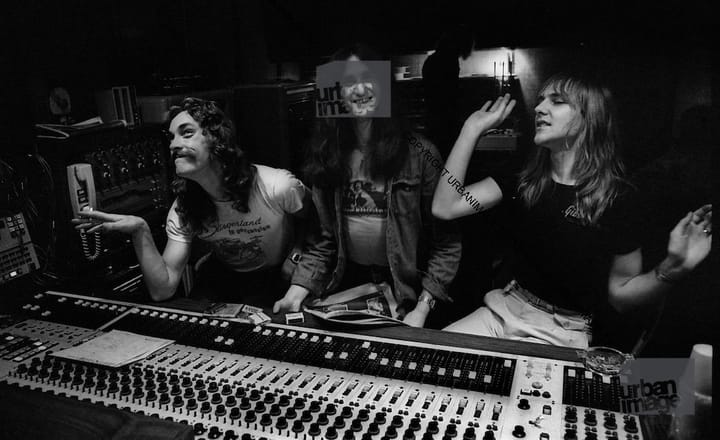
Comments ()